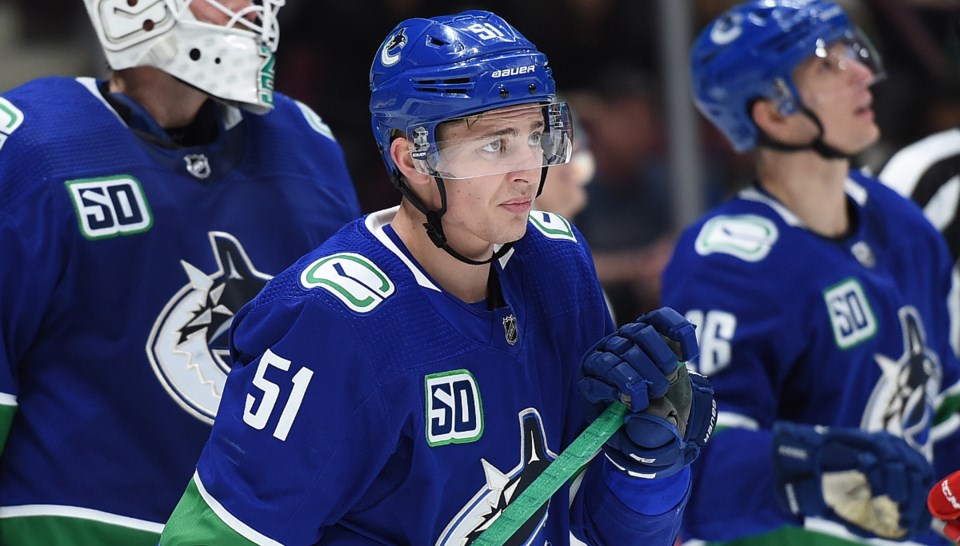It was a busy Wednesday for the �鶹��ýӳ��Canucks. It wasn’t just day two of the NHL Entry Draft, but also the deadline for qualifying offers for restricted free agents.
A qualifying offer is simply a statement from an NHL team that they want to retain the rights of their restricted free agents. There is a set minimum amount for the qualifying offer based on the previous year’s salary. A player can accept the qualifying offer or reject it and enter contract negotiations for a better deal.
For the most part, this is a simple process. The Canucks qualified most of their RFAs, but didn’t qualify Reid Boucher and Nikolay Goldobin, who are now playing in the KHL, nor did they qualify Francis Perron and David Pope, who underwhelmed in the AHL.
The biggest name that didn’t get qualified, however, was Troy Stecher.
That comes as a surprise: Stecher was a solid member of the Canucks’ defence corps for the past four seasons, frequently playing up the lineup when injuries struck, including occasionally on the top pairing with Alex Edler.
What’s especially tough is that Stecher was living his dream. He famously grew up in Richmond cheering for the Canucks and was thrilled to sign in his hometown as a college free agent out of the University of North Dakota. Now he’ll head to free agency and look for a job far from home.
Stecher’s qualifying offer would have been equal to his contract from last season: $2.325 million. Evidently, that was too much for the Canucks, who are trying to negotiate their current cap crunch while looking to add a significant contract in Oliver Ekman-Larsson and re-sign Jacob Markstrom and Chris Tanev. The other issue was the threat of arbitration, where Stecher may have been able to argue for a raise. That would put the Canucks in even more of a bind.
The Canucks could have tried to negotiate a lower cap hit for Stecher on a longer-term deal in lieu of a qualifying offer — they did so a few years ago with Derrick Pouliot and this year with Zack MacEwen — but they reportedly did not attempt to do so.
Beyond the sentimentality, Stecher was a solid all-around defenceman for the Canucks. A smart, hard-battling player, Stecher had a lot of versatility and could be used in many different situations. It's troubling that the team's tight salary cap situation will cost the Canucks a useful player. He won’t be easy to replace, particularly as a right-side defenceman.
In terms of prospects, Brogan Rafferty is likely at the top of the list for the right side, with Jett Woo and Jalen Chatfield behind him. As much as Rafferty had a great rookie season in the AHL, there’s no guarantee he can be an everyday player in the NHL.
Otherwise, the Canucks will need to look to free agency, a trade, or moving a left-side defenceman to his off-side.
It also makes it even more of a priority for the Canucks to re-sign Chris Tanev. Replacing one right-side defenceman will be hard enough — replacing two could be a serious issue.




